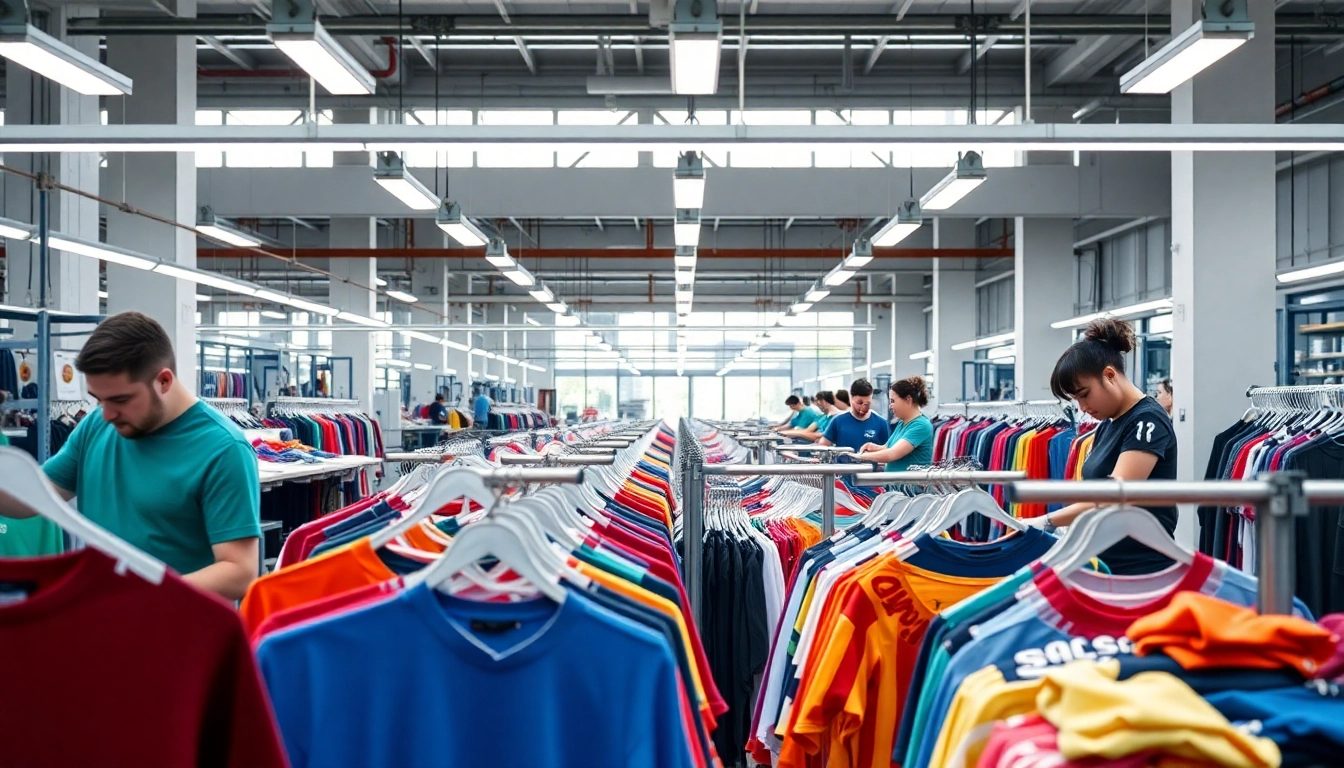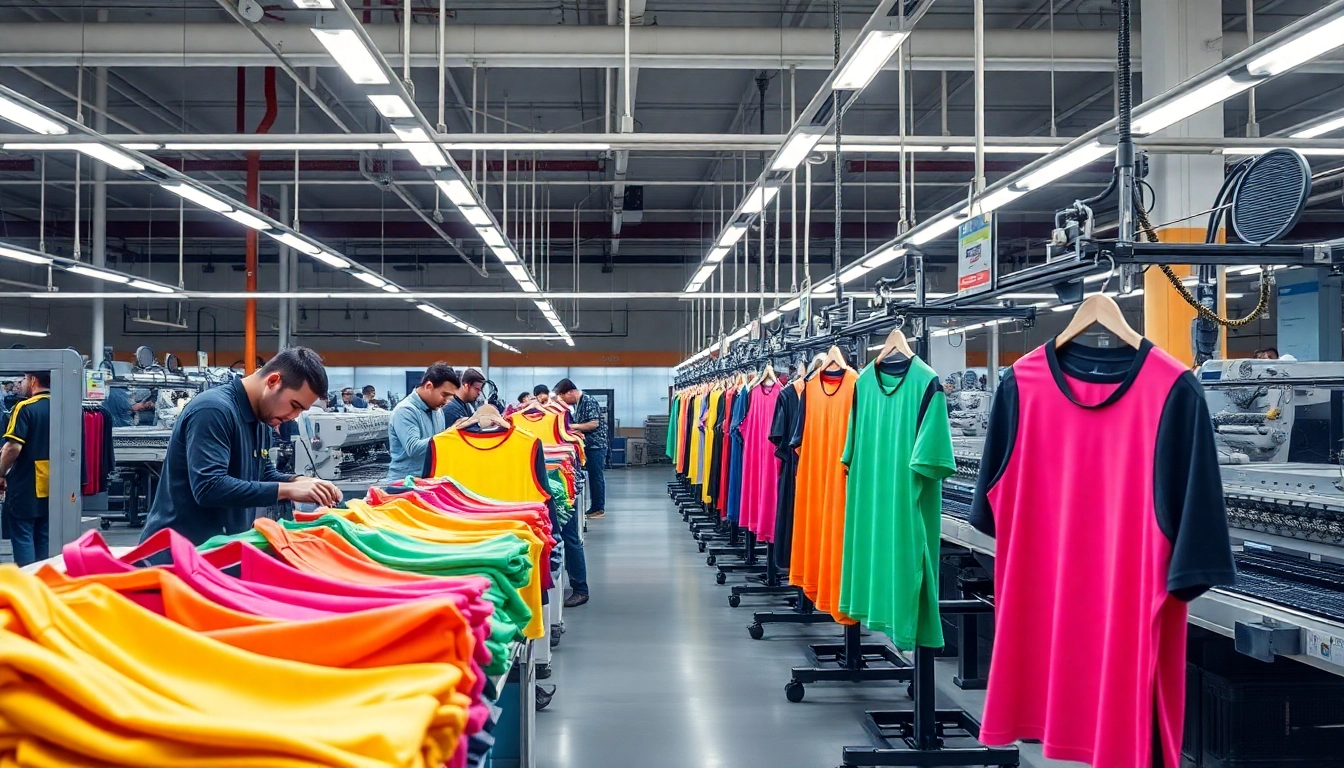Introduction to Sportswear Manufacturing in Pakistan
Pakistan has emerged as a global hub for sportswear manufacturing, renowned for its ability to produce high-quality, custom sports apparel at competitive prices. This vibrant industry is anchored primarily in the city of Sialkot, which has established a reputation as the heart of athletic garment production. The combination of skilled craftsmanship, modern technology, and a strategic geographical location enables Pakistani sportswear factories to serve international markets efficiently. If you’re looking for a reliable partner to produce your sportswear designs, understanding the nuances of this industry is essential. For more insights into how these factories operate, visit a leading Sportswear factory in Pakistan specializing in custom sports apparel.
Overview of Pakistan’s Sportswear Industry
The sportswear industry in Pakistan is characterized by rapid growth and innovation. Driven by a combination of traditional craftsmanship and modern manufacturing techniques, Pakistani factories produce everything from performance jerseys and training kits to casual activewear and accessories. The industry benefits from a robust network of specialized suppliers, textile mills, and skilled labor pools that meet international standards.
According to recent industry data, Pakistan exports millions of sportswear units annually to countries across North America, Europe, and the Middle East. This export success is fueled by the industry’s ability to deliver customized products with quick turnaround times and cost-effective pricing. Additionally, the industry is increasingly adopting sustainable practices, integrating eco-friendly fabrics and reducing waste, aligning with global environmental standards.
Why Sialkot is the Heart of Sportswear Production
Sialkot’s reputation as the premier sportswear manufacturing center in Pakistan stems from decades of specialized focus and technical excellence. The city has developed a comprehensive ecosystem encompassing raw material suppliers, cutting-edge machinery, and expert workforce training. Sialkot’s factories are equipped with the latest technology, allowing for high-precision manufacturing of custom sports apparel tailored to client specifications.
Moreover, Sialkot’s strategic location facilitates easy export logistics, providing manufacturers with access to major shipping routes and ports. The city’s manufacturing standards are bolstered by industry associations and government support, aiming to uphold quality and facilitate international certification processes. Prominent brands worldwide rely on Sialkot-based sportswear factories for their consistent quality and ability to meet demanding deadlines.
Assessing the Global Demand for Pakistani Sportswear Factories
Global sportswear markets are experiencing sustained growth, driven by increased health awareness, fitness trends, and the popularity of sports like football, cricket, and martial arts. Pakistani sportswear factories are strategically positioned to capitalize on this demand, offering a combination of affordability and quality that appeals to both large brands and emerging startups.
International buyers often seek manufacturers capable of OEM (original equipment manufacturer) services, custom design, and quick delivery. Pakistani factories excel in these areas, leveraging their capacity for mass production and flexible customization. Growing concerns over environmental impact and sustainability are also prompting factories to innovate with eco-friendly fabrics, further enhancing their attractiveness on the global stage.
Key Features of a High-Quality Sportswear Factory
Advanced Equipment and Technology Integration
To produce competitive sportswear, factories must invest in cutting-edge machinery such as industrial sewing machines, robotic cutting tables, and digital printing equipment. These tools enable precise, efficient production and support complex customization options like sublimation printing and embroidery. Continuous technology upgrades ensure factories can meet evolving industry standards and deliver innovative products.
Skilled Workforce and Quality Assurance
High-quality sportswear depends heavily on the skill set of the manufacturing team. Experienced seamstresses, technicians, and quality inspectors are vital to maintaining consistent standards. Implementing stringent quality assurance protocols—such as ISO certifications and third-party inspections—ensures that each batch meets the desired specifications, durability, and safety standards essential for athletic wear.
Sustainable Manufacturing Practices
Eco-friendly manufacturing is increasingly critical in the sportswear sector. Leading factories adopt practices like using recycled fabrics, reducing water and energy consumption, and minimizing waste through efficient cutting and recycling techniques. Sustainability not only aligns with global trends but also enhances brand reputation, attracting environmentally conscious customers.
Designing Custom Sportswear at a Factory Level
Customization Options for Different Sports
Factories today offer extensive customization options tailored to specific sports requirements. From moisture-wicking jerseys and breathable shorts to padded gloves and compression gear, manufacturers can produce apparel that enhances athlete performance. Customization extends to team logos, numbering, and branding, enabling brands and sports teams to create unique looks.
Sample Development and Prototyping Process
The journey begins with detailed sketches and technical specifications. Once designs are finalized, factories develop prototypes for testing fit, comfort, and performance. This phase involves multiple iterations, ensuring the final product aligns perfectly with client expectations. Advanced digital tools and samples help streamline this process, reducing lead times.
Order Finalization and Mass Production
After approving prototypes, clients place their orders for mass production. Efficient production schedules and quality control measures ensure timely delivery. Many factories operate under OEM and private labeling arrangements, providing flexibility for brands to launch their products globally without extensive operational overheads.
Optimizing Supply Chain and Logistics in a Sportswear Factory
Managing Raw Materials and Inventory
Effective inventory management is crucial to meet demand fluctuations and avoid delays. Leading factories build strong relationships with textile suppliers and utilize digital inventory systems to track raw materials like polyester, spandex, and specialized dyes. This ensures the timely availability of quality inputs and reduces production bottlenecks.
Shipping and Export Opportunities
Pakistan’s proximity to major shipping lanes, coupled with established export processes, facilitates efficient distribution to international markets. Many factories partner with reputed logistics providers to handle customs clearance, freight forwarding, and last-mile delivery, ensuring seamless supply chain operations.
Ensuring Timely Delivery and Customer Satisfaction
Meeting delivery deadlines is critical for maintaining customer trust. Modern factories employ real-time production tracking, flexible production planning, and contingency strategies to uphold commitments. Customer satisfaction is amplified when factories provide transparent communication and proactive issue resolution throughout the supply chain.
Future Trends and Growth Opportunities in Sportswear Manufacturing
Innovations in Performance Fabrics
Advancements in textiles, such as moisture-wicking, anti-odor, and UV-protective fabrics, are transforming sportswear. Pakistani factories are investing in research and development to incorporate these innovative materials, which appeal to athletes seeking enhanced performance and comfort.
Green Manufacturing and Sustainability
Sustainable practices are no longer optional. Leading manufacturers aim to achieve certifications like GOTS or OEKO-TEX, utilizing recycled fibers and eco-friendly dyes. These measures align with global corporate responsibility trends and open new market segments eager for environmentally conscious products.
Expanding to New Markets and Custom Client Solutions
The industry is also focusing on diversification—moving beyond conventional sportswear to include athleisure, eco-friendly casualwear, and specialized apparel for niche sports. Custom client solutions, such as on-demand production and private label branding, are expected to drive future growth, supported by technological innovations in manufacturing and supply chain management.


